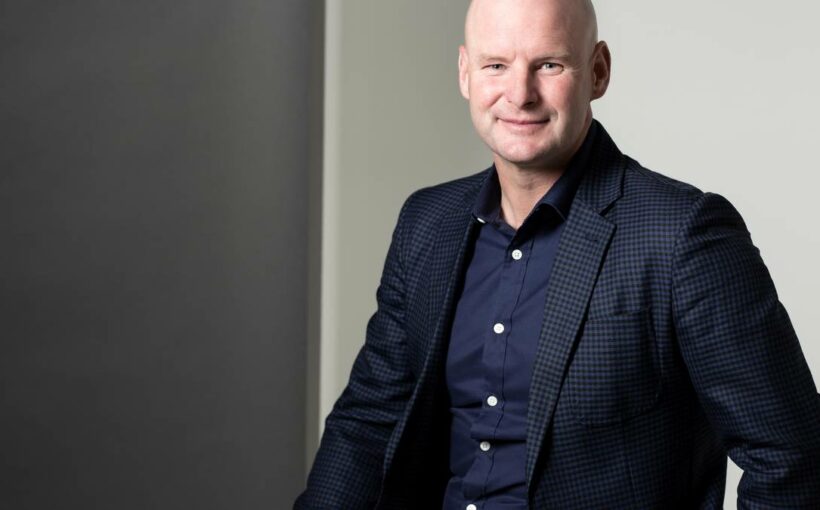Scott Pritchard, chief executive of Precinct Properties which owns the new $1 billion Commercial Bay, says the Government needs to encourage people back to offices to enliven city centres.
On how 2021 went and the outlook for 2022, Pritchard said the state had a key role to help industries recover and centres to thrive once again.
Q: How would you describe 2021 for your business?
A:Rollercoaster! At the start of the year, there was a level of uncertainty for us, particularly around the role of the office given most people had been working from home for months. However, we have seen solid demand for quality office accommodation, especially on the waterfront. We have leased over 36,000sq m since the start of the year. That includes the transaction with Deloitte which has seen them taking naming rights at the iconic One Queen Street building. Businesses are very clearly prioritising their staff and the place in which they work, particularly in a market where there is a labour shortage for skilled employees.
Q: How is your business planning to tackle 2022?
A: Head on: 2022 will be a big year for Precinct. We’re hoping to kick off the final stage of the Wynyard Quarter Innovation Precinct, Bowen Campus will be largely complete with construction coming to an end at 40 and 44 Bowen St. Although not due to be completed until 2023 One Queen Street will be well advanced. We’re also really excited to get some momentum on the new Generator building in Wellington. Firstly though, after a big year, the team need a good rest over the holiday period.
Q: What will be the major challenges and/or opportunities for your industry?
A: A major challenge in the industry will be within the construction market and increasing costs. The cost of materials and the challenge to get materials into New Zealand in a timely manner, as well as the shortage of labour in that sector, will have a significant impact on the industry. Ultimately the cost to build is going to be extraordinarily high.
Another challenge is rising interest rates. We’ve had the benefit of four to five years of really low interest rates which have stimulated the economy, however we’re now heading into a period where rates will rise. From a real estate perspective, this is going to be challenging for those who just collect the rent, it will be critical to find value in the next few years.
In terms of opportunities, I think there are actually more opportunities for Precinct than ever. We’re being presented with a range of exciting opportunities and we’re considering the best opportunities for us to invest in and where to best allocate our capital.
Q: How do you think the Government has handled the Covid-19 crisis?
A: Overall, it has been a mixed bag and we are not yet at the end of the pandemic to be able to judge their performance objectively. As we’ve seen in the last few months, the tough decisions need to be made quickly and they really need some clarity in their thinking and their decision making.
They did start well, however, I think they should have been better prepared for Delta; if there had been a focus on prioritising vaccination rates earlier we probably would’ve been in a better position than where we are now. Likewise with the failure to invest in more ICU beds, as it has been our lack of capacity which has driven the need for incredibly strict rules and the consequence of these rules has been brutal on small business owners.
In particular, the decision made by Government to amend the Property Law Act was incredibly disappointing and demonstrated a lack of understanding about how the industry works. Singling out only landlords to subsidise businesses through altering existing contracts, yet not looking at other sectors like banking and insurance, etc, didn’t make a lot of sense and was extremely challenging for the property sector. The consensus amongst the property industry is that this was poorly handled given the sector wasn’t consulted and it has already proven to be really unnecessary.
Q: What are two key things the Government should do for economic recovery?
A: 1. From a hospitality and retail perspective we need the borders open and as much as we need international tourists, for those industries, we also really need the borders open for workers. We cannot rely on our own population to fulfil the types of jobs across our economy, particularly in relation to construction. If we don’t open the borders to this workforce we will continue to see significant cost increases.
2. Reinvigorate city centres, especially Auckland. City centres have been hit hardest during Covid as they rely so heavily on tourism and those who work in the city. The Government needs to encourage people back to the office and promote city centres.
Q: What was the most interesting non-Covid story of 2021?
A: This was harder to think of than it should have been. Jeez, I’m sick of talking about Covid.But I’d have to say – the Olympics. They were fascinating and a great distraction. Seeing Lisa Carrington become the most successful and decorated Olympian in New Zealand’s history was fantastic.
Source: Read Full Article
